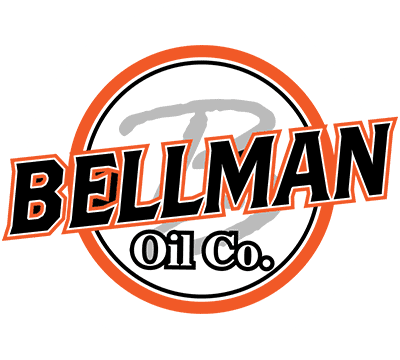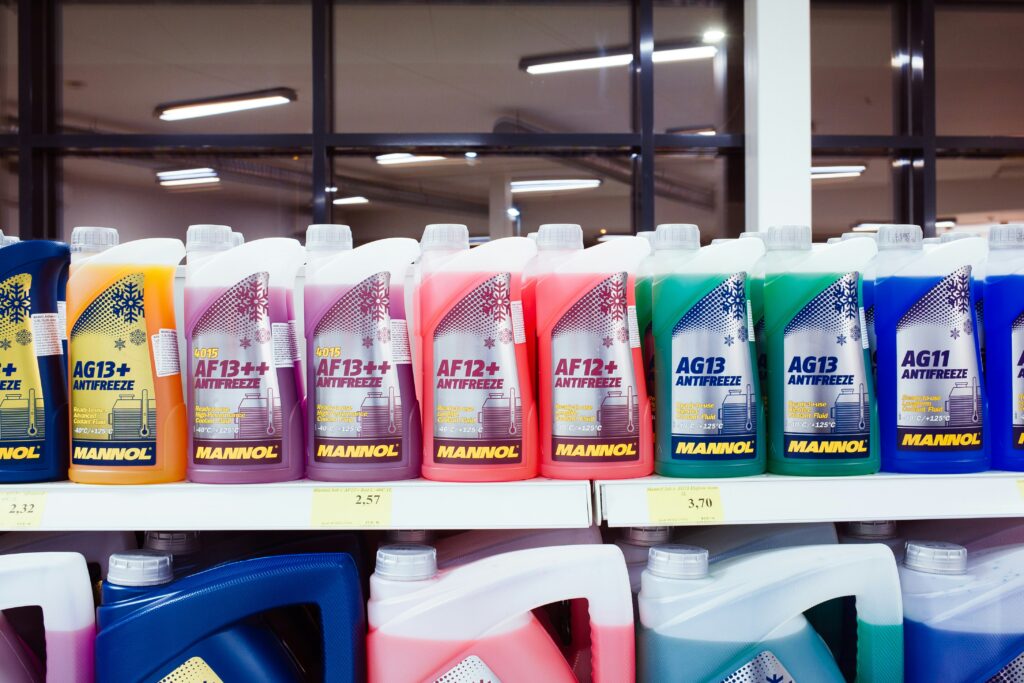Antifreeze is an essential mechanical fluid that prevents systems from overheating or freezing. This fluid is most often connected to automotive engines. However, it can also be used in various industrial and manufacturing settings to maintain temperature balance. Understanding how antifreeze functions is essential for anyone involved in vehicle maintenance or industrial operations. Let’s look at the ins and outs of antifreeze: what it is and how it works!
What is antifreeze?
Antifreeze is a chemical fluid added to heating and cooling systems to regulate temperature, particularly when systems are exposed to extreme conditions. Its primary function is to lower the freezing point and raise the boiling point of the fluid it is mixed with. This ensures the system operates effectively in a wide range of temperatures. On a molecular level, this fluid inhibits the growth of ice crystals, reducing the likelihood of malfunctioning machinery.
Antifreeze is typically made from a combination of ethylene glycol and other additives. Ethylene glycol is a colorless and odorless liquid with excellent heat transfer properties. Propylene glycol is also commonly used instead of ethylene glycol because it is less toxic. It is often used in applications where safety is a concern, such as in food processing or when human or animal exposure is possible. The additives in antifreeze are used to enhance its performance and protect the mechanical system. These include corrosion inhibitors, antifoaming agents, and dyes.
There are three main types of antifreeze fluids.
Conventional Green Antifreeze
This is the most common type, containing inorganic additives like silicates and phosphates. It is typically green in color and is suitable for older vehicles. However, it requires more frequent replacement due to its shorter lifespan.
Extended Life Antifreeze
Alternatively, Extended Life Antifreeze uses organic additives that provide longer-lasting protection and create a reddish or orange color.
HOAT Antifreeze
Hybrid Organic Acid Technology (HOAT) antifreeze provides a balance between the other kinds of antifreeze, using inorganic and organic acid additives. This kind of antifreeze produces robust protection against corrosion while maintaining a longer lifespan.
Understanding the composition and types of antifreeze is crucial for selecting the right product for your needs, whether for automotive use or other applications. By choosing the appropriate antifreeze and maintaining it properly, you can ensure your cooling system’s efficiency.
How Antifreeze Works
Antifreeze is a crucial component of nearly every cooling system due to its unique properties that protect engines from intense temperature changes. When mixed with water, antifreeze significantly lowers the solution’s freezing point. This is essential in preventing the coolant from freezing in cold temperatures, which could otherwise cause the coolant to expand and damage the engine or cooling system components. Alternatively, antifreeze also raises the boiling point of the coolant mixture, providing a greater range of operating temperatures for the engine.
Because of its heat resistance, antifreeze contributes to effective heat transfer in engines. During combustion, antifreeze absorbs excess heat from the engine and transfers it to the radiator, preventing the engine from overheating. This continuous cycle ensures that the engine operates within its optimal temperature range.
Beyond its temperature-regulating properties, antifreeze can also protect cooling systems from corrosion. One of the common additives in this fluid is corrosion inhibitors that prevent rust and scale buildup within the cooling system. These inhibitors create a protective barrier on the metal parts of the cooling system, shielding them from the corrosive effects of water and other elements. This ensures that coolant can flow smoothly through the system, contributing to an efficient engine.
Ultimately, antifreeze serves numerous purposes in engines, making it vital to the efficiency of mechanical operations.
Applications of Antifreeze
Though commonly associated with vehicle engines, antifreeze can be used in various industrial, commercial, and recreational settings. In vehicles, antifreeze is used in engine cooling systems to regulate temperature during combustion. This essential fluid can also be used in automotive HVAC systems to help maintain comfortable cabin temperature by efficiently transferring heat within the vehicle’s climate control system.
In the industrial world, antifreeze is used in building HVAC systems to improve energy efficiency and reduce maintenance costs. This fluid prevents freezing pipes during the winter and maintains effective heat transfer throughout the year. Antifreeze is also essential in various industrial processes where temperature control is critical. It is used in cooling systems for manufacturing equipment, chemical processing, and power generation. Antifreeze helps maintain the efficiency and longevity of industrial machinery by preventing overheating and ensuring consistent temperatures.
Antifreeze can also be used in a variety of unique settings and situations. For example, this fluid is often used in the refrigeration systems of ice skating rinks to maintain the ice surface, even when the temperature outside fluctuates. Antifreeze solutions are also used in de-icing fluids for aircraft to remove and prevent ice formation on the wings. This ensures the safety of aircraft operations in all weather conditions. Antifreeze’s diverse applications make it indispensable in maintaining the functionality and efficiency of numerous systems.
How to Choose the Right Antifreeze
Selecting the appropriate antifreeze for your vehicle or system ensures optimal performance, longevity, and protection against extreme temperatures. The right antifreeze will depend on several factors, including the type of engine, manufacturer recommendations, and the specific conditions in which the vehicle or system operates. The best place to start is by consulting manufacturer guidelines. Different engines or systems are designed to work with different types of antifreeze.
Additionally, consider the typical temperature conditions under which the system operates. This will help you determine the appropriate dilution of antifreeze in the coolant. For example, in colder climates, a higher concentration of antifreeze may be necessary to prevent freezing, while in hotter climates, the focus may be on preventing overheating.
Bellman Oil Can Help!
Choosing the right antifreeze solution can be challenging, given the diverse nature of engines and HVAC systems. At Bellman Oil, we can help you choose the right antifreeze to maximize your system’s efficiency and longevity. Reach out today to learn more about our engine fluids and oils!




